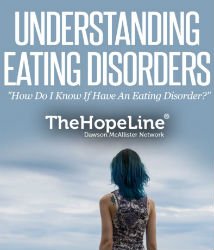Influencer Effects on Teen Body Image and Eating Disorders in NZ
In today’s digital age, New Zealand teens are increasingly influenced by social media, where a constant stream of images and messages can shape their perceptions of body image. Influencers play a significant role in this landscape, often promoting unrealistic beauty standards that can lead to detrimental effects on mental health and well-being. The influence of social media on eating disorders is a pressing concern, as young people may emulate the behaviors and ideals they see online, risking the development of harmful eating habits.
As parents, it is crucial to equip teens with strategies to critically assess the content they consume and to foster a healthy self-image. By understanding the impact of influencers on eating disorders, caregivers can engage in open dialogues, promote media literacy, and encourage healthy lifestyle choices, ultimately guiding their children toward a more positive relationship with their bodies.
Understanding the Influencer Landscape in New Zealand
In the digital age, social media influencers have become powerful figures, particularly among teenagers who often turn to platforms like Instagram, TikTok, and Snapchat for inspiration and validation. In New Zealand, influencers can sway opinions and perceptions regarding body image, beauty standards, and lifestyle choices. Studies show that exposure to idealized body images can lead to body dissatisfaction and a rise in eating disorders among adolescents. Parents must be aware of the specific influencers that their teens follow, as these figures can significantly impact their self-esteem and body image perception.
To combat the adverse effects of influencer culture, parents should engage in conversations with their teens about the content they consume. Discussing the unrealistic nature of many online portrayals can help instill a sense of critical thinking. Moreover, sharing local examples of influencers who promote body positivity and healthy lifestyles can provide a counter-narrative to the often narrow definitions of beauty presented online. By fostering an environment where teens can express their feelings and thoughts on the content they see, parents can help mitigate the influencer impact on eating disorders.
Encouraging Critical Media Literacy
One of the most effective ways parents can help their teens navigate influencer-driven body image issues is by fostering critical media literacy. This involves teaching teens to analyze and evaluate media messages critically, recognizing the difference between reality and the curated lives that influencers present. Workshops and discussions focused on media literacy can empower teens to question the authenticity of social media content, helping them understand that many influencers use editing tools and filters to present an idealized version of themselves.
In New Zealand, schools and community organizations often provide resources and programs aimed at enhancing media literacy among youth. Parents can advocate for these programs or even host their own discussions at home. Encouraging teens to explore the motivations behind influencers’ posts, including sponsorships and marketing strategies, can demystify the influencer phenomenon. By understanding that much of what they see is crafted for engagement rather than authenticity, teens can build resilience against negative body image influences.
Promoting Healthy Lifestyle Choices
To counteract the negative effects of influencer culture, parents should actively promote healthy lifestyle choices within their homes. This includes encouraging balanced nutrition, regular physical activity, and positive body image. By modeling healthy habits themselves, parents can create an environment where wellness is prioritized over appearance. In New Zealand, parents might consider enrolling their teens in local sports teams, dance classes, or outdoor activities that celebrate physical abilities rather than focusing solely on aesthetics.
Additionally, parents should be cautious about discussing diets and weight loss in front of their teens. Instead, conversations should center around the joy of cooking, exploring diverse cuisines, and understanding the importance of nourishing the body. Engaging in family activities that promote health, such as cooking healthy meals together or going for hikes, can be a fun way to reinforce positive habits while minimizing the influence of harmful body image standards.
Creating Open Lines of Communication
Establishing open lines of communication is crucial for helping teens navigate body image concerns influenced by social media. Parents should strive to create a safe space where their children feel comfortable discussing their feelings about body image, peer pressure, and the content they encounter online. Active listening is key; parents should validate their teens’ feelings and experiences without dismissing them.
Regular family check-ins can be beneficial in maintaining this dialogue. Parents can ask their teens about their favorite influencers and what they admire about them, steering the conversation towards body image and self-esteem. This approach not only fosters connection but also allows parents to guide their teens in recognizing both positive and negative aspects of influencer culture. If issues arise, parents can direct their teens to resources like the Eating Disorders Association of New Zealand, which provides support and information on body image and eating disorders.
Encouraging Positive Online Engagement
Parents can guide their teens towards positive online engagement by encouraging them to follow influencers who promote body positivity, self-acceptance, and mental health awareness. In New Zealand, many local influencers advocate for inclusivity and diversity in body types, providing a refreshing contrast to the typically narrow beauty standards seen elsewhere on social media.
Encouraging teens to engage with content that fosters self-love and realistic body representations can help counteract the negative messages often encountered online. Parents can help by curating a list of body-positive influencers and encouraging their teens to engage with these accounts. This proactive approach not only helps teens build a healthier online environment but also reinforces the idea that worth is not tied to appearance but to character and actions.
Utilizing Professional Resources and Support
When influencer-driven body image issues escalate, it may be necessary to seek professional support. Parents should be proactive in recognizing the signs of body dissatisfaction or eating disorders in their teens, such as drastic changes in eating habits, excessive exercise, or withdrawal from social activities. If concerns arise, reaching out to professionals such as counselors or therapists who specialize in body image and eating disorders is crucial.
In New Zealand, resources like the Eating Disorders Association of New Zealand offer valuable information and support for families facing these challenges. Parents should not hesitate to utilize these resources, as they provide guidance on how to address body image issues constructively. Building a relationship with a healthcare provider can empower parents to support their teens effectively while ensuring they receive the appropriate care.
Fostering Resilience and Self-Esteem
Finally, fostering resilience and self-esteem in teens is essential in combating the negative impact of influencer culture. Parents can encourage their teens to engage in activities that promote self-worth, such as volunteering, pursuing hobbies, or joining clubs that align with their interests. Celebrating achievements and affirming their individuality can help reinforce a positive self-image that is not reliant on social media validation.
Promoting a growth mindset, where mistakes and setbacks are viewed as opportunities for learning, can also bolster resilience. Encouraging teens to set personal goals and focus on their strengths helps shift the focus away from comparison with others online. By nurturing their teens’ self-esteem and teaching them the importance of inner qualities, parents can help them navigate the complex landscape of influencer-driven body image issues more effectively.
FAQs
What role do influencers play in shaping body image perceptions among teenagers?
Influencers often set trends and beauty standards that teens feel pressured to emulate. Their curated lifestyles and images can lead to unrealistic comparisons, contributing to body dissatisfaction and, in some cases, the development of eating disorders.
How can parents identify if their teen is struggling with body image issues?
Signs may include drastic changes in eating habits, withdrawal from social activities, excessive exercise, or frequent comments about feeling “fat” or “ugly.” Open communication is crucial; parents should encourage their teens to express their feelings and concerns about body image.
What strategies can parents use to help their teens critically evaluate influencer content?
Parents can encourage critical thinking by discussing how influencers often edit their photos and may not represent reality. Engaging in conversations about the motivations behind influencer marketing can help teens recognize the curated nature of social media content.
How can parents promote a healthy body image at home?
Creating an environment that values health and wellness over appearance is vital. Parents can model positive body language, share diverse representations of beauty, and foster activities that emphasize self-esteem and self-worth beyond physical appearance.
What resources are available for parents concerned about influencer impact on their teen’s mental health?
There are numerous resources, including online forums, workshops, and mental health services that focus on body image and eating disorders. Organizations like the New Zealand Eating Disorders Clinic provide support and information tailored to these issues.
Should parents monitor their teen’s social media use?
While it’s important to maintain trust and respect their privacy, parents can set guidelines for social media use and encourage open discussions about the content their teens consume. Monitoring can help identify harmful influences and promote healthier online habits.
How can parents encourage positive role models outside of social media?
Encouraging involvement in community activities, sports, or arts can help teens find role models who promote health, resilience, and self-acceptance. Highlighting stories of individuals who advocate for body positivity can also inspire teens to embrace their uniqueness.
References
- Eating Disorders Association of New Zealand – A comprehensive resource offering information and support for individuals affected by eating disorders, including guidance for parents on body image issues influenced by social media.
- Mental Health Foundation of New Zealand – A report exploring the impact of social media on teens’ mental health, with strategies for parents to help their children navigate body image concerns.
- Youthline New Zealand – An organization providing support and resources for young people, including information on body image issues and the role of social media in shaping perceptions.
- Te Pou: Body Image and Self-Esteem Resources for Parents – A resource offering practical advice for parents on fostering a positive body image in their teens and addressing the challenges posed by influencers.
- Beyond Blue: Body Image and Mental Health – An Australian organization that provides insights into the relationship between body image and mental health, including strategies for parents to support their teens in a media-driven world.









Recent Comments